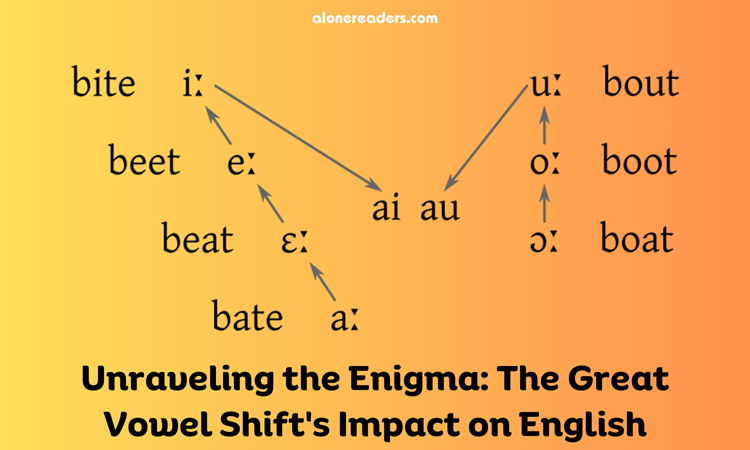
The Great Vowel Shift is a fascinating linguistic phenomenon that occurred during the Middle Ages, where the pronunciation of vowels in the English language underwent a significant change over a relatively short period. This shift affected the long vowels of Middle English, which were pronounced significantly differently after the shift than they were before. This change is remarkable not only because of the extent of the transformation but also because it seemed to have occurred within one to two generations. The reasons behind this dramatic shift remain a topic of debate and speculation among linguists and historians, making it one of the most intriguing mysteries in cultural history.
Before delving into the theories surrounding the Great Vowel Shift, it is crucial to understand what changes occurred. Essentially, the long vowels in Middle English began to be pronounced higher in the mouth, and in many cases, vowels that were previously pronounced separately merged. For example, the Middle English pronunciation of the word "name" would have sounded more like "nah-me," with the vowel sound in "name" sounding like the 'a' in modern "father." After the shift, it moved to the vowel sound we use today, similar to the 'ay' in "day."
This shift was systematic; it was not a random fluctuation but a patterned movement of vowel pronunciations through "vowel space" – the conceptual area where vowel sounds are mapped according to the position of the tongue and lips.
Numerous theories have been proposed to explain why the Great Vowel Shift occurred. Some linguists suggest that it was a result of social changes. The Black Death, which significantly reduced the population of England, led to greater social mobility and could have resulted in increased interaction between speakers of different dialects, accelerating changes in pronunciation.
Another theory posits that the shift was influenced by language contact and borrowing, especially from French, due to the Norman Conquest. The influx of French vocabulary into English during the Middle Ages could have pushed English speakers to modify their vowel pronunciations to accommodate the new words.
Technological advancements, such as the invention of the printing press, may have also played a role. As English began to be standardized through printed works, regional variations in pronunciation might have converged towards a more uniform, and consequently changed, set of pronunciations.
The Great Vowel Shift had profound implications for the English language. It marked the transition from Middle English to Early Modern English, the form of the language used by Shakespeare and the King James Bible. This shift dramatically altered the phonetic landscape of English and is one of the reasons why English spelling can be so confusing—it reflects the pronunciation of pre-shift English.
Culturally, the shift coincided with significant events in British history, such as the Renaissance, the Reformation, and the rise of the British Empire. It also paralleled the development of English literature, with Chaucer on one end and Shakespeare on the other, showcasing the linguistic evolution through their works.
The Great Vowel Shift remains a topic shrouded in mystery. Despite numerous theories, no single explanation has been universally accepted, and it continues to be a subject of research and debate. What is clear, however, is the impact of the shift on the English language, its speakers, and its literary culture. It is a testament to the fluidity and adaptability of language and serves as a compelling example of how even the most fundamental aspects of communication can undergo dramatic change.